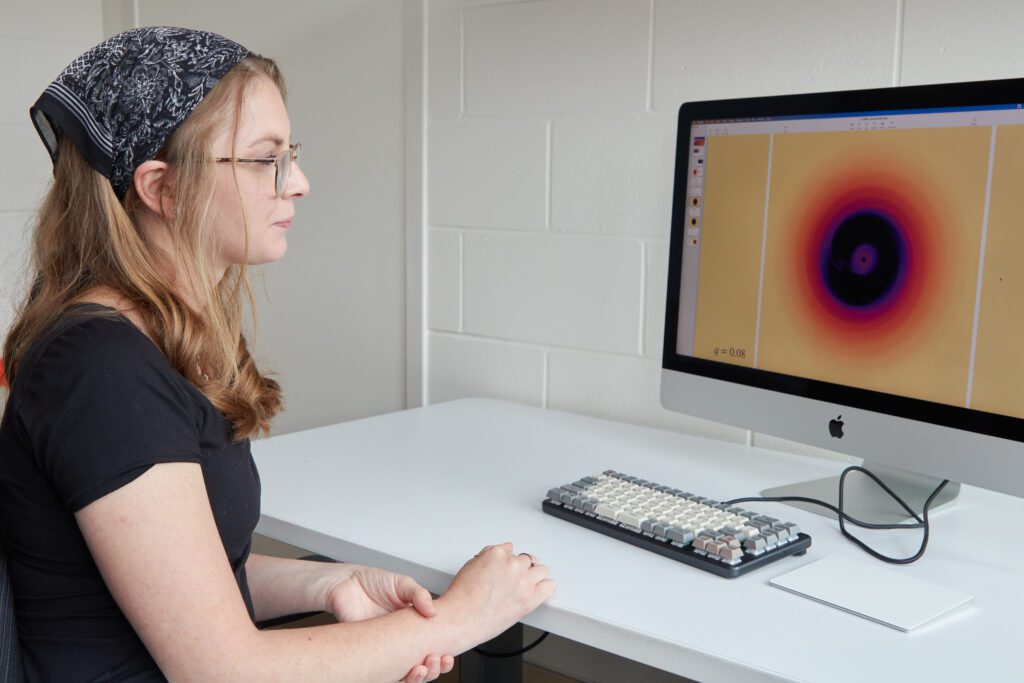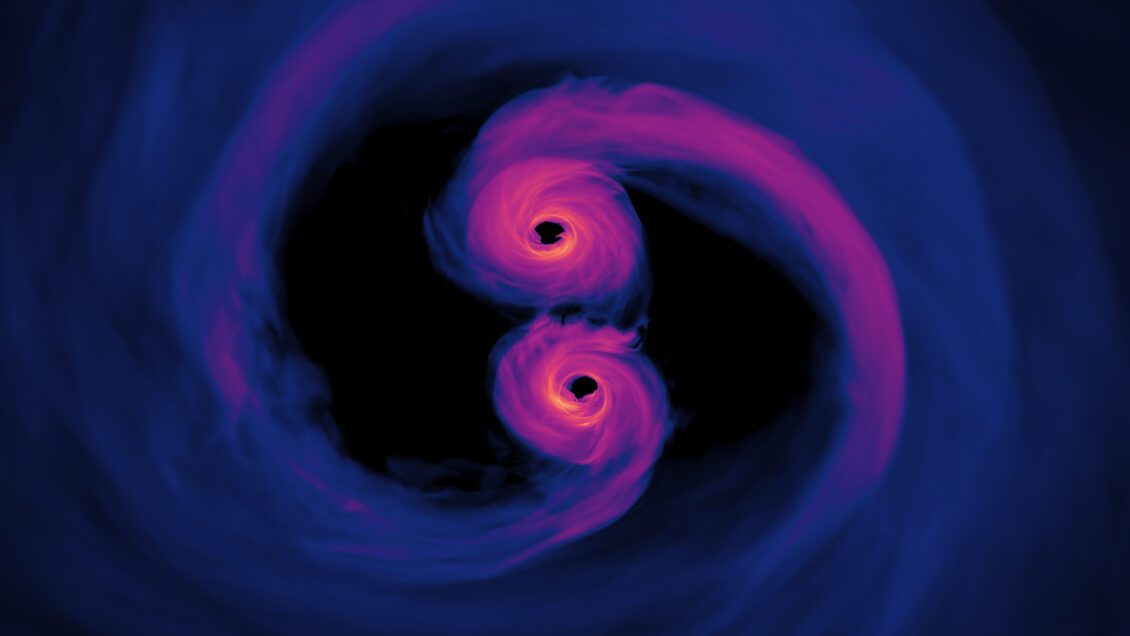Madeline Clyburn, a doctoral student at Clemson University, has been selected for a prestigious NASA research grant to investigate the physics of merging black holes. The program, Future Investigators in NASA Earth and Space Science Technology (FINESST), selects about two dozen young researchers each year nationally and is highly competitive.

Clyburn, a third-year Ph.D. student in the Department of Physics and Astronomy, will use computer simulations to predict how massive black hole binaries — systems that have two black holes in close orbit around each other — will appear to telescopes in the final days before they spiral inwards and coalesce into a single black hole.
Her predictions will be crucial to the discovery of binary black hole systems in the distant universe using two “messengers” — light waves and gravitational waves, which are ripples in space-time.
“The main reason for this kind of research is to enable the joint study of black hole binaries using electromagnetic and gravitational waves, and to learn about the galaxies which host these systems,” said Jonathan Zrake, Clyburn’s adviser and an assistant professor in the Department of Physics and Astronomy. “Combining electromagnetic and gravitational wave observations is a very powerful astronomical approach. We’re just at the beginning, but these capabilities are going to be dramatically expanded over the next couple of decades.

“Madeline’s early career will be right in the middle of this explosion of potential for multi-messenger discoveries.”
The space-based gravitational wave detector LISA (Laser Interferometer Space Antenna), which is expected to launch in the late 2030s, will likely confirm the existence of massive black hole binaries, but pinpointing their locations in the sky and making inferences about their astrophysical environments will require joint electromagnetic observations by telescopes on the ground and in space, Clyburn said.
That’s where her research comes in.
Using a computer program written and maintained by Zrake’s research group, along with fast processors on Clemson’s Palmetto supercomputer, Clyburn will predict the electromagnetic signatures of massive black hole binaries as their orbits shrink because they are losing energy to gravitational waves. Her simulations are the first to investigate what happens in the very likely case that the black holes have different masses from one another.

Clyburn’s preliminary findings suggest that as the orbit shrinks in the final stages before the black holes merge, the system could undergo a characteristic change in its color, the result of the larger and smaller black holes consuming gas at differently evolving rates.
“I’m focusing on the amount of mass that each black hole will gain during the inspiral before it merges, and that will be directly related to the light that we receive from those systems,” Clyburn said. The gravitational wave detectors are not very good at pinpointing the sky positions of merging black holes, she said. “The hope is that our predictions will allow conventional telescopes to figure where the merger happened and help us identify the properties of the host galaxy.”
Clyburn said she was honored to receive the FINESST award and that it will allow her to focus on her research. Because the grant will provide her graduate student stipend, she won’t have to work as a teaching assistant during the award period.
“It proves to me that the research I’m doing is relevant and something important to do. And NASA thinks it’s important, which is pretty cool,” she said. The award includes financial support for computing equipment and to attend astronomical conferences in the U.S. and abroad. She said getting the award could open up job opportunities for her in the future.
Get in touch and we will connect you with the author or another expert.
Or email us at news@clemson.edu

